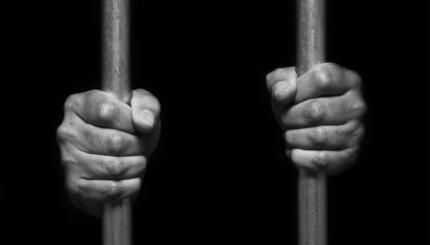The following is the traditional Ashkenazic text of the Kol Nidrei service.
אוֹר זָרוּעַ לַצַּדִּיק
Ohr zaroo-ah latzadeek
With your help, My Jewish Learning can provide endless opportunities for learning, connection and discovery.
Light is sown for the righteous
וּלְיִשְׁרֵי לֵב שִׂמְחָה
u-l’yishrei lave simchah
and for the upright in heart—joy
The following declaration is made by the cantor and repeated three times:
עַל דַּֽעַת הַמָּקוֹם
ahl da’at hamakom
With the consent of the Almighty,
וְעַל דַּֽעַת הַקָּהָל
vee-al da’at hakahal
and consent of this congregation,
בִּישִׁיבָה שֶׁל מַֽעְלָה
beesheevah shel ma’alah
in a convocation of the heavenly court,
וּבִישִׁיבָה שֶׁל מַֽטָּה
u-beesheevah shel matah
and a convocation of the lower court,
אָֽנוּ מַתִּירִין
ah-noo mahteereen
we hereby grant permission
לְהִתְפַּלֵּל עִם הָעֲבַרְיָנִים
l-hitpalel bayn ha-abaryaneem
to pray with transgressors
כָּל נִדְרֵי
kol nidrei
All vows,
וֶאֱסָרֵי
veh-essaray
and things we have made forbidden on ourselves,
וּשְׁבוּעֵי
u-sh’vooh-ay
and oaths,
וַחֲרָמֵי
vacharamay
and items we have consecrated to the Temple,
וְקוֹנָמֵי
vih-konamay
and vows issued with the expression “konum,”
וְכִנּוּיֵי
vih-cheenooyay
and vows which are abbreviated,
וְקִנוּסֵי
vih-keenoosay
and vows issued with the expression “kanos,”
דִּנְדַֽרְנָא
dindahrnah
that we have vowed,
וּדְאִשְׁתַּבַּֽעְנָא
u-d’eeshtahbahnah
and sworn,
וּדְאַחֲרִימְנָא
u-d’achareemnah
and dedicated,
וּדְאָסַֽרְנָא עַל נַפְשָׁתָֽנָא
u-d’ahsahrnah ahl nahfshatahnah
and made forbidden upon ourselves;
מִיּוֹם כִּפּוּרִים זֶה
meeyom keepooreem zeh
from this Yom Kippur
עַד יוֹם כִּפּוּרִים
ahd yom keepoorim
until next Yom Kippur—
הַבָּא עָלֵֽינוּ לְטוֹבָה
hahbah ahlaynoo l’tovah
may it come to us at a good time—
בְּכֻלְּהוֹן אִחֲרַֽטְנָא בְהוֹן
bihchoolhone eecharahtnah b’hone
We regret having made them
כֻּלְּהוֹן יְהוֹן שָׁרָן
coolhone y-hone shahrahn
may they all be permitted
שְׁבִיקִין, שְׁבִיתִין
sh’veekeen, sh’veeteen
forgiven, eradicated
בְּטֵלִין וּמְבֻטָּלִין
bihtayleen u-m’vootahleen
and nullified,
לָא שְׁרִירִין
lah sh’reereen
and may they not be valid
וְלָא קַיָּמִין
v’lah kayameen
or exist any longer.
נִדְרָֽנָא לָא נִדְרֵי
needranah lah nidrei
Our vows shall no longer be vows,
וֶאֱסָרָֽנָא
veh-ehsahrahnah
and our prohibitions
לָא אֱסָרֵי.
lah ehsarei
shall no longer be prohibited,
וּשְׁבוּעָתָֽנָא לָא שְׁבוּעוֹת
oosh’vooahtanah lah sh’voo’ote
and our oaths are no longer oaths.
The cantor and congregation say three times:
וְנִסְלַח לְכָל עֲדַת
v’nislach l’chol adaht
Forgive the entire congregation
בְּנֵי יִשְׂרָאֵל
b’nay yisrael
of the children of Yisrael
וְלַגֵּר הַגָּר בְּתוֹכָם
v’lahgare hagahr b’tochahm
and the stranger amongst them
כִּי לְכָל הָעָם בִּשְׁגָגָה:
kee l’kole ha’ahm bishgahgah
for the entire people sin unintentionally.
סְלַח נָא לַעֲוֹן הָעָם הַזֶּה
s’lach nah la’avone ha’am hazeh
Please pardon the sins of this nation
כְּגֹֽדֶל
kih goh-dell
in accordance with the greatness
חַסְדֶּֽךָ
chas’dechah
of Your lovingkindness;
וְכַאֲשֶׁר נָשָֽׂאתָה לָעָם הַזֶּה
vih ka’ashare nahsahtah la’am hazeh
and as You forgave this people
מִמִּצְרַֽיִם וְעַד הֵֽנָּה:
mee-mitzrayim v’ad haynah
from when it left Egypt until now.
וְשָׁם נֶאֱמַר
v’shahm ne’emahr
And there it is said:
Congregation says three times:
וַיֹּֽאמֶר יְהֹוָה
vah-yoe-mare adonai
And Adonai said
סָלַֽחְתִּי כִּדְבָרֶֽךָ
sah-lach-tee kid’vorecha
“I have pardoned [them] as you have asked”
Hebrew and English text taken from The Metsudah Machzor, via Sefaria.



